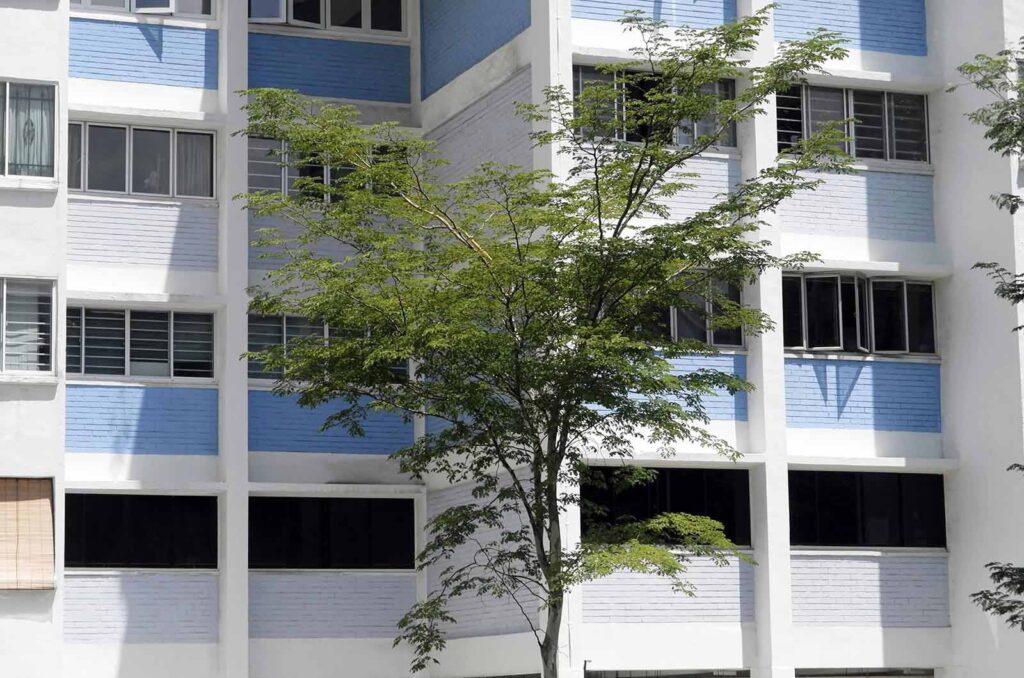"Find the Perfect Housing Loan, Tailored to Your Needs."
How Housing Loans Work
Who is Eligible for a Home Loan?
HDB and banks each have their own eligibility criteria for prospective borrowers, which include:
Fulfilment of the Monetary Authority of Singapore’s, HDB’s/ Bank’s credit requirements
SGLoanMart - loans specialists
Putting our customers first!
Through trust and confidence, we’ve built a solid reputation in our industry.
By empowering our customers, we’ve learned that we empower our business too.
From your first home to your forever home, we’re here for your biggest financial decisions. We are your lifelong property partner.
What Is A Housing Loan?
An HDB loan or home loan is a sum borrowed from HDB or a bank to assist with your property purchase. For HDB flats, you may also qualify for housing loans at a concessionary interest rate, depending on HDB’s eligibility criteria.
With a home loan:
- Your property is used as collateral for the loan
- The amount granted is based on eligibility
- The loan is disbursed after the downpayment is made, when you pay the remaining purchase price to the seller
- Interest is charged from the first disbursement
Types Of Housing Loans
HDB provides a concessionary loan exclusively for HDB flat buyers, with an interest rate set at 0.1% above the CPF Ordinary Account interest rate. This rate is adjusted in accordance with any changes to CPF interest rates.
For banks, there are two main types of home loans:
Fixed-rate loans
Floating or variable rate loans

Here's how bank loans compare:
Fixed-Rate Loans
Rate is fixed and will not change for the first few years (promotional rate)
Rate does not change even when market rates fall
After a fixed rate period, interest becomes variable
Floating Or Variable Rate Loans
Rate varies and is usually tied to a reference rate e.g. CPF Ordinary Account, Singapore Overnight Rate Average (SORA) or a rate determined by the bank (e.g. internal board rate)
If the reference rate goes up, the interest payable will increase and vice versa
The reference rate for your housing loan may vary based on current market conditions, and banks typically notify you at least 30 days in advance of any rate changes.
To gain a clearer understanding of different bank loan packages, ask your bank to clarify:
- How the reference rate is determined
- The frequency of potential rate adjustments
- Conditions that may trigger rate changes
- Any special features of the loan, and whether these may be removed or modified later
How Interest Is Computed
The most common way to calculate interest is through the monthly reducing balance (or monthly rest) method.
Even a slight increase in interest rates can impact your monthly installment and the overall effective interest rate for your loan.
To illustrate, here’s how the monthly installment changes for an S$800,000, 30-year loan at varying interest rates using the monthly rest method:
Interest Rate | 1.24% | 1.42% | 1.61% |
|---|---|---|---|
Effective Interest Rate (EIR) | 1.5% | 2.5% | 3.5% |
Monthly Instalment | $2,760 | $3,160 | $3,592 |

Common Questions on Home Loan
Can I get loan rates lower than what is “published”?
Yes, it’s possible to secure a lower rate than what’s publicly listed. Different banks offer varying rates, and these can fluctuate over time. Your loan amount and credit score also play a role in determining your rate. If you have a higher loan amount and a strong credit score, you may be able to negotiate for more favorable rates and terms beyond what’s publicly advertised.
Looking for the best housing loan rates in Singapore? Contact our professional advisors at SGLoanMart to connect with our entire panel of banks and secure the best rates.
How Much Housing Loan Can I Borrow in Singapore?
The amount you can borrow for a housing loan depends on multiple factors considered by banks and financial institutions. The main criteria include:
- Gross Monthly Income
- Age
- Loan Amount
- Credit Score (including Total Debt Servicing Ratio or Mortgage Service Ratio)
- Type of Property
- Loan-to-Value (LTV) Limit
Loan-to-Value (LTV) Limit
The Loan-to-Value limit determines the maximum loan amount you can borrow, calculated as:
LTV = Loan Amount / Property Value
Banks assess the following factors when determining LTV eligibility:
- Current loans and credit obligations
- Monthly repayment proportion relative to income
- Loan tenure
- Discounts, rebates, or benefits offered
Your LTV limit may vary based on the number of existing housing loans.
Total Debt Servicing Ratio (TDSR)
The TDSR measures the percentage of your gross monthly income used to cover monthly debt payments, including the new loan. For private property loans, TDSR is capped at 55% of your gross monthly income. For HDB flats, both TDSR and MSR are capped at 30%.
Mortgage Servicing Ratio (MSR)
MSR refers to the portion of your monthly income dedicated to property loan payments, including your new loan. The MSR cap of 30% applies only to HDB properties.
Should I Get a Loan if My Property is Under Construction?
Yes, especially if you plan to use CPF for your down payment. CPF requires evidence of an approved home loan before releasing funds. Having a loan secured in advance can streamline the disbursement process and help you meet payment requirements as construction progresses.





